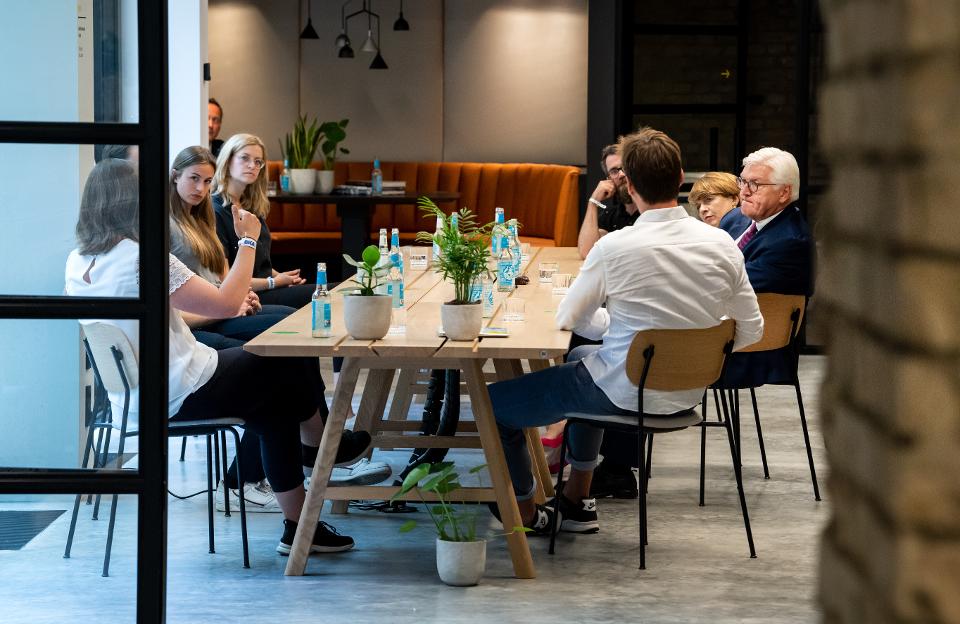 Over the last few decades, innovation activity has become concentrated in clusters or ecosystems, where finance, academia, industry and entrepreneurs rub shoulders to allow the free flow of ideas. A report from Startup Genome in 2018 highlighted the growth in ecosystems, with many increasingly focusing on a specific domain, whether that’s fintech for London, biotech for Boston, or AI for Toronto.
Over the last few decades, innovation activity has become concentrated in clusters or ecosystems, where finance, academia, industry and entrepreneurs rub shoulders to allow the free flow of ideas. A report from Startup Genome in 2018 highlighted the growth in ecosystems, with many increasingly focusing on a specific domain, whether that’s fintech for London, biotech for Boston, or AI for Toronto.
“In this new era of tech, one strategy for smaller ecosystems to increase their footprint is to focus on specific sub-sectors in either verticals or deep tech areas where they have existing strengths,” the authors explain.
Their latest report highlights how this growth in emerging ecosystems is continuing apace. They predicted last year that around 100 cities would have ecosystems worth at least $4 billion by 2029, but they now believe this milestone will be hit even earlier. Indeed, of the 12 “Challenger Ecosystems” identified in last year’s report, 7 had progressed into the top 30 ecosystems in the world.
Innovating our response to Covid-19
Given this context, it was perhaps no surprise to see the Brookings Institute argue in March that such ecosystems would be crucial in the fight against covid-19.
“It’s through networks of small geographies of innovation—areas of advanced research, rapid prototyping, and commercialization—that progress is made,” they argue.
Through the work of the Global Institute of Innovation Districts they highlight the work of ecosystems from Melbourne to Milan, St Louis to Stockholm, all of whom are working to further the development of a vaccine for the virus.
Practical solutions
Among ecosystems, the rapid nature of the pandemic has meant the hackathon format has been a common means of bringing together the ecosystem to muster a coordinated fight against the pandemic.
In Madrid, for instance, the #VenceAlVirus (‘Beat the Virus’), explored solutions in areas such as community, employment, and of course health. In the Czech Republic, the Hack the Crisis saw ideas in areas such as diagnostic testing, open source ventilators, and nano filters for masks given support.
Even the Eurasian state of Azerbaijan has got in on the act by hosting the Global Virtual Hackathon, with the winning entrant a Polish team helping communities to better support one another during the pandemic.
Speeding the recovery
Ecosystems will also play a strong role in our recovery from the pandemic. We have already seen tremendous progress in a wide range of digital and technology products during the crisis, and these will continue to play a fundamental role in the recovery. This is because not only are most new jobs likely to come from new young companies, but startup jobs are also easier and cheaper to save via government support.
“The best estimates we have suggest that for every high-technology job, five other jobs are created in the economy,” The Startup Genome report says. “This is not only because these jobs pay high wages, but also because they create new products, innovations, and are such big exporters for the economy.”
Research from Columbia Business School highlights the crucial role startups play in economic recoveries, but that startups are also struggling significantly as a result of the financial pressures induced by the crisis.
“It’s not enough to have a relief program just focused on saving existing businesses and streamlining bankruptcies,” the researchers explain. “A real recovery will be spurred by entrepreneurship, the essence of U.S. growth and dynamism. Without it, I worry about a bleak picture for the recovery and follow-on growth.”
Globally competitive
From a global perspective, it seems that emerging ecosystems are going to play a major role in this recovery. The competitiveness of emerging markets was underlined by the recent World Competitiveness Rankings, from IMD Business School, which saw smaller economies dominate the rankings.
“The benefit of small economies in the current crisis comes from their ability to fight a pandemic and from their economic competitiveness,” the researchers explain. “In part these may be fed by the fact it is easy to find social consensus.”
The authors believe that Singapore scored so highly in part due to its robust international trade and labor market conditions, and partly due to its robust infrastructure, including a strong technological infrastructure and education system.
Denmark continued the strong performance of smaller economies by coming 2nd in the league table, with the researchers suggesting this was in large part due to strong health and education systems, which compliment the robust economy and labor market in the country. The Danes also scored strongly on productivity and international investment.
A changing landscape
As with so much, however, the innovation landscape will be fundamentally changed by the pandemic. Research from UK innovation group NESTA outlines the difficulties existing innovation infrastructures have in supporting the kind of balanced, fair, and green economy that so many people yearn for in the post-covid world.
“In addition to weak and uneven economic performance, anxiety was mounting about the broader consequences of technological innovation, from its potential to increase inequality and its impacts on marginalised groups, to the undermining of democracy and the reduction of human agency,” they say. “And while the public had a clear appetite for new technologies to be managed to mitigate such risks and harms, less than a third were confident politicians were doing enough.”
It’s an environment in which people are expecting innovation not only to be fairer and more evenly distributed, with the fruits of those innovations spread across society rather than coalescing in the pockets of the few. The pandemic has also highlighted the need for innovation ecosystems to provide things that people really need.
Discontent prompted Silicon Valley icon Marc Andreesen to share his frustration at the inability of Silicon Valley to produce vaccines, medicines, masks, and ventilators. “We could have these things but we chose not to — specifically we chose not to have the mechanisms, the factories, the systems to make these things. We chose not to ‘build,’” he says.
With Covid-19 set to make many of the challenges faced by the world that much worse, our innovations not only need to tackle the key societal challenges of our time, but they need to be delivered to market at a scale that sees all sectors benefiting. Too often our economies are riddled with regional inequalities, especially among smaller businesses, where the latest innovations seldom reach.
If our desire for a more resilient and balanced economy is to be reached, then the way we innovate has to change too. It’s pleasing that successful ecosystems are breaking out from Silicon Valley and other global hubs, and democratizing innovation. These hubs are not only specializing in their own areas, but are also innovating in ways that suit their regional tastes and needs.
From Delhi to Detroit, this new breed of startups build their organisations in a global, distributed way, with talent recruited from wherever it may be. They strive not only to make money, but make a tangible difference to society. They’re comfortable operating in an environment where “moving fast and breaking things” is not tolerable, and where the education, energy supply, and financial services that many Silicon Valley startups take for granted cannot be guaranteed.
“The world outside the Valley is different, where startups often must cope with political or economic instability and lack of infrastructure, where there might be little or no access to angel investors, venture capitalists, or experienced employee pools,” Alexandre Lazarow says in Out-Innovate: How Global Entrepreneurs–from Delhi to Detroit–Are Rewriting the Rules of Silicon Valley. “Under such conditions, entrepreneurs must be creators who build industries rather than disrupters who change them.”
It is 16 years since CK Prahalad published his groundbreaking book on the Fortune at the Bottom of the Pyramid, and as startup activity has become democratised around the world, the future will be driven less by startups parachuting into regions from celebrated western hubs, and more by ventures whose very being is rooted in the territories they aim to serve.

